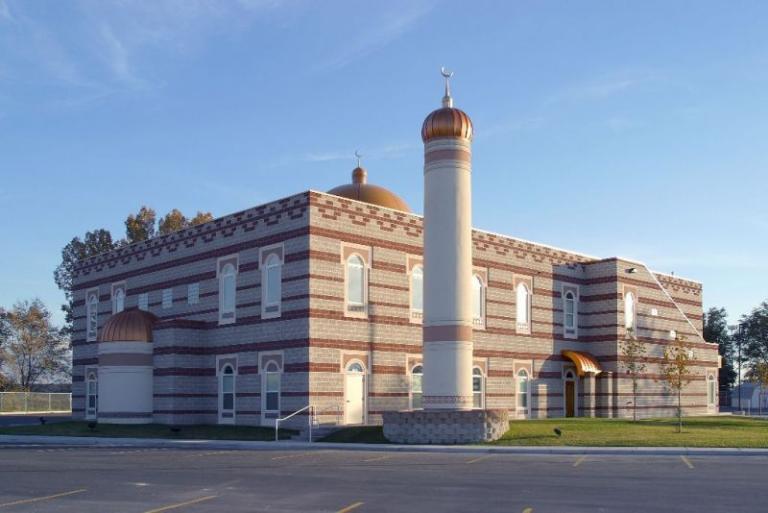
(From the CRC Construction website)
Still excerpting passages from a manuscript in progress:
Islam insists on an absolute gulf, an unbridgeable chasm, between God and everything else in the universe. There is no kinship between Creator and creature, any more than there was a genetic relationship between Thomas Edison and the lightbulb.[1] In Islam, Jesus too is a creature.[2] Educated Muslims will probably understand what we Christians mean when we speak of “the brotherhood of man under the Fatherhood of God,” and they may even have sympathy for the sentiment. But their theology cannot permit them to accept such a statement literally.
Another point that can perhaps be clarified here is the proper name of the religion of Muhammad and his place within the religion. If Islam refuses to recognize the divine Sonship of Jesus, it also rejects even the barest hint that Muhammad was more than human. Many contemporary Muslims are offended when their religion is called “Muhammadanism.” Not only is that long word somewhat awkward to say, but, they point out, it implies that Muhammad plays the same role within their religion that Christ plays within Christianity. Nothing, however, could be further from the truth. Muhammad does not atone for our sins, he is not divine, and he receives no worship. Rather, they say, the true name of their religion is the name it has always borne, Islam.[3]And believers in their religion are to be called Muslims, not Muhammadans.[4] (Muslim bears the same relation to Islam that Christian bears to Christianity, or Mormon to Mormonism. The first is a term for the believer; the second refers to the doctrine or movement itself.)[5] The Arabic word islam means “submission.” It derives from the same Semitic root (s-l-m) that gives us the words for “peace” in Hebrew (shalom) and in Arabic (salaam). The model of islam is the prophet Abraham, for it is not submission to just anybody or anything that is meant by the term as the Qur’an uses it, but specifically submission to the sovereign will of God. One who so yields himself or herself to the divine will is a “submitter,” or, in Arabic, a muslim— from the same root, s-l-m. Thus, in a sense, to call believers in the message of Muhammad “Muslims” is very much like calling believers in the prophetic mission of Joseph Smith “Saints.” Each term is as much an expression of hope as a statement of present reality.
[1] In popular Islam, especially among the uneducated, there is a flourishing practice of venerating “saints,” holy men and women who have passed on to the presence of God. I suspect that the unapproachability of the Islamic God, his sheer distance, is an important factor in this.
[2] Like all other prophets. The Qur’an is quite clear on this: As in the case of Adam, God simply said “Be!” and Jesus came into existence. See 3:47, 59; 19:35.
[3] Pronounced with the hissing s of this rather than with the z sound of these, and with the emphasis on the second syllable: Iss-LAAM.
[4] Pronounced something like MUSS-lim.
[5] I often hear people in the West refer to the Arabs as “Islams.” This would be like referring to Latter-day Saints as “Mormonisms.”











